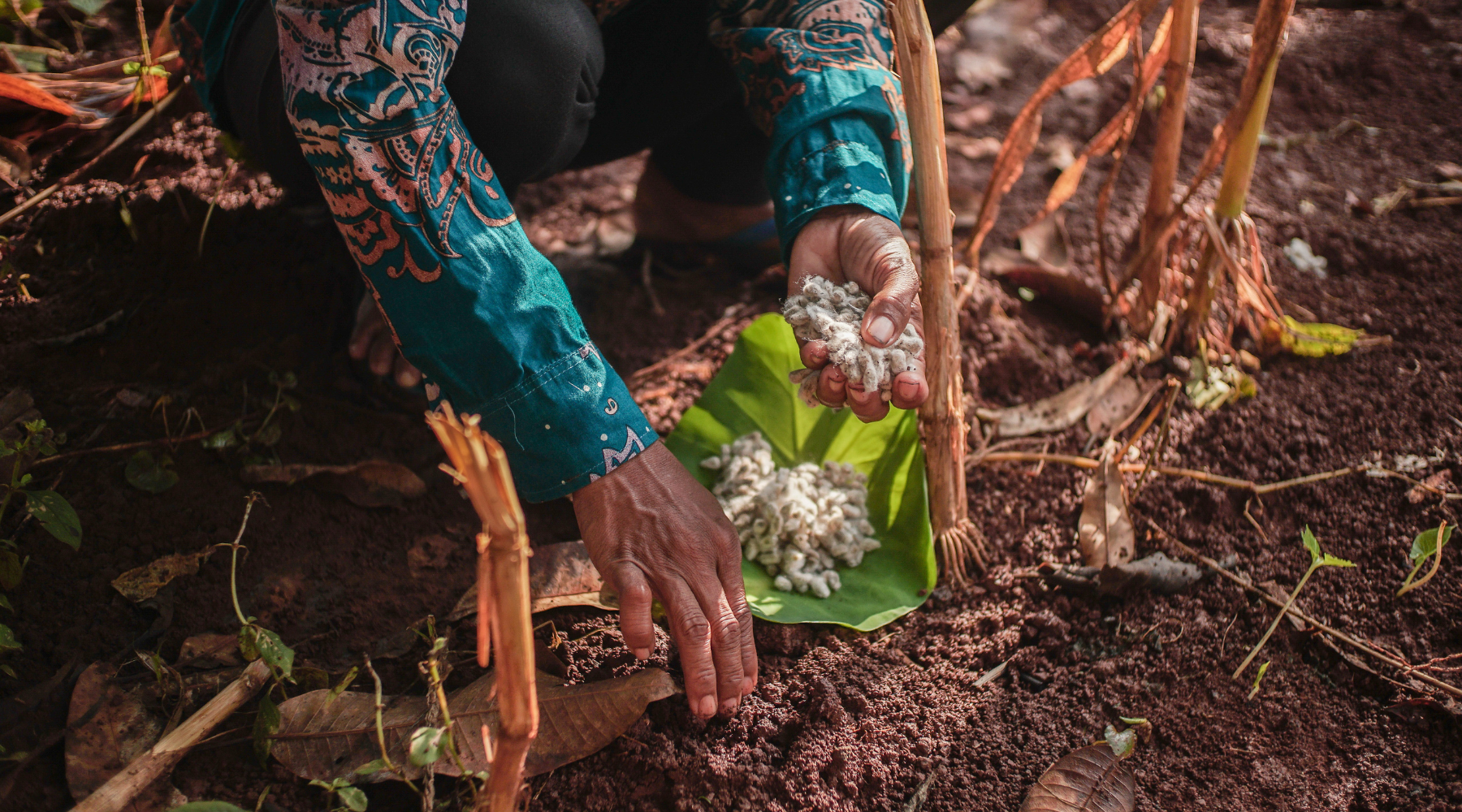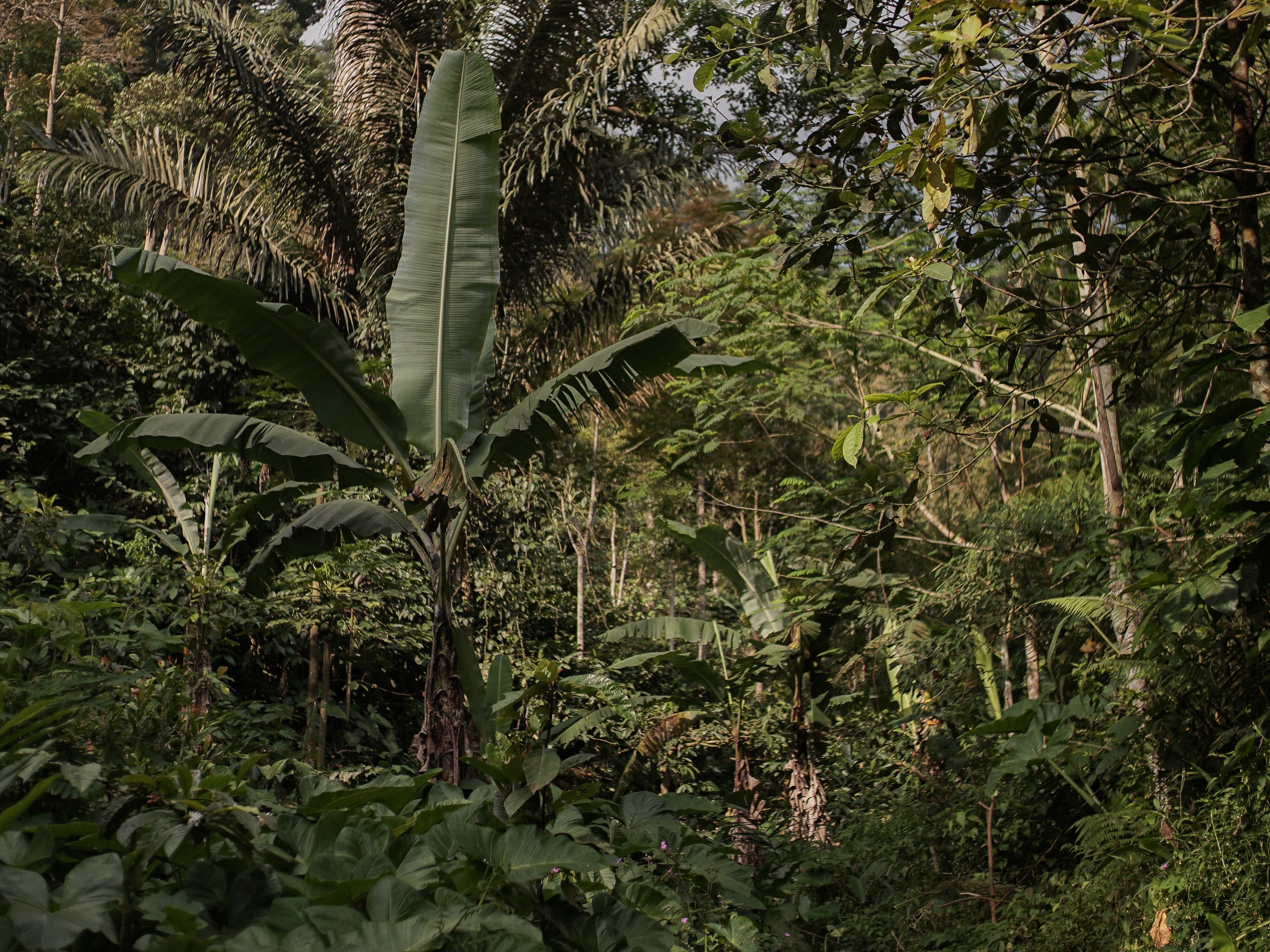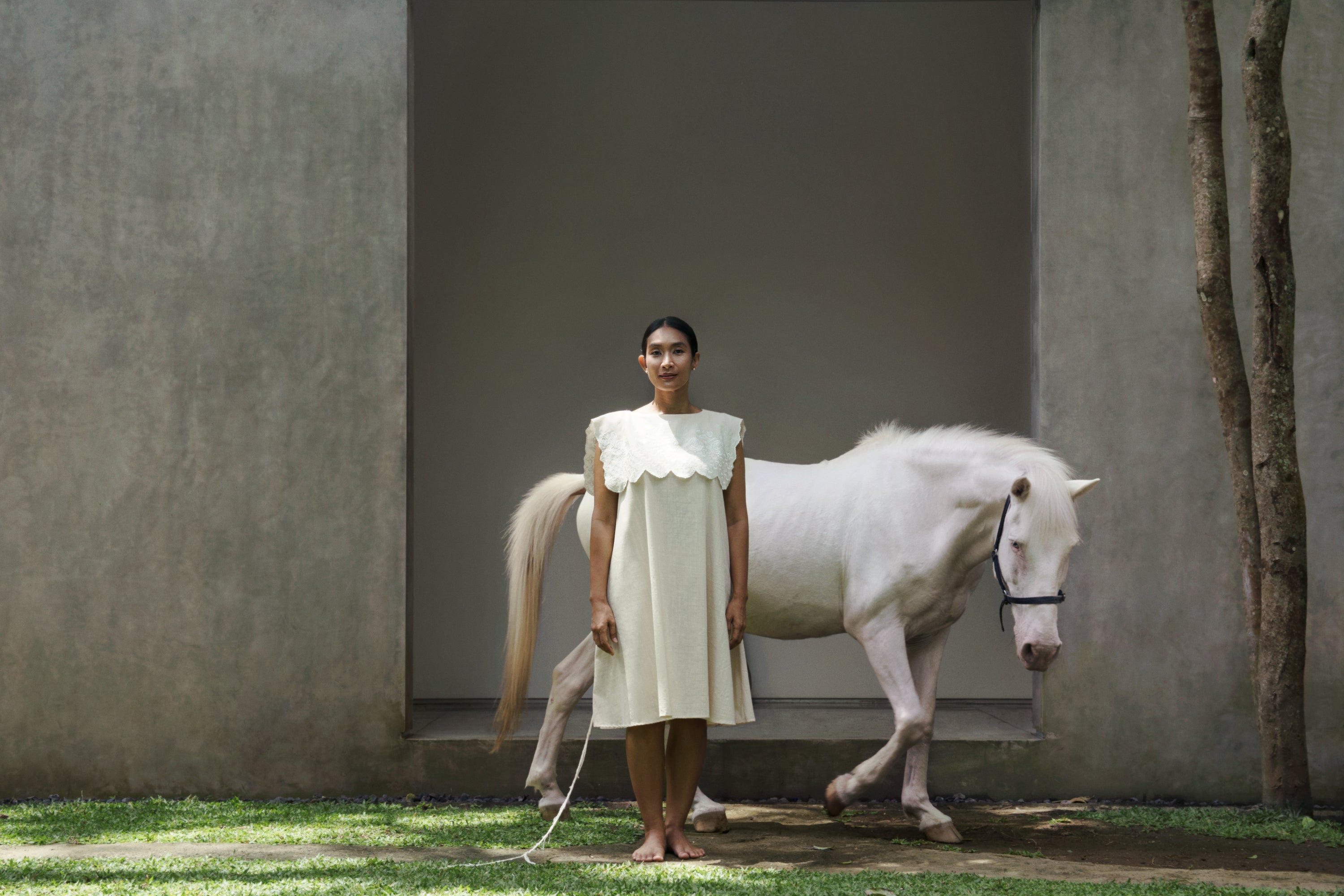
Instead of making ourselves the "next China" or the "next Singapore", we need to decolonise and rebuild our Indonesian identity by revitalizing our rich ancestral wisdom.
We see a lot of potential in cotton. It's a versatile natural fiber that is perfect for our climate. However, they are not always sustainable. Typically grown in large monocultures, cotton requires an exorbitant amount of water and even more agrochemicals.
Currently, 99% of Indonesia's cotton is imported and it is incredibly difficult to trace its origins. Then, what if there is a better way? What if we can ensure that Indonesia supplies her own cotton?
The answer is closer than we think. Look at our Garuda Pancasila mascot, and you will see that both cotton and rice symbolizes socioeconomic justice.

Our indigenous cotton has a huge potential not only to satisfy the country's demand, but also provide a reliable livelihood for farmers. Our native species of cotton is rainfall reliant and thrives in polyculture. They have a distinct texture that feels lush and breathable.
It took us a long time to convince one farmer to join—but amazingly, it works! 600% increase in yields, with only natural, indigenous fertilizers and pesticides and the magic of tumpang sari.
Tumpang sari, or polyculture, is one of the best nature-based solution to fight climate change. This indigenous way of agriculture is slowly replaced monoculture, creating an evil cycle of dependence on agrochemicals that depletes the soil and becomes too expensive to bear.

This is what Indonesians call "sekali mendayung, dua tiga pulau terlampaui"—solving multiple problems with the simple act of returning to our indigenous practice.
- Farmers are able to have a consistent source of income through our fair trade.
- They no longer need to invest in synthetic agrochemicals.
- The soil heals; it can hold up to 25% more water and increase carbon levels in the soil by up to 50%.
- Six times higher yields—equals higher income for the farmers.
- Traceable, locally grown, fully biodegradable cotton!




